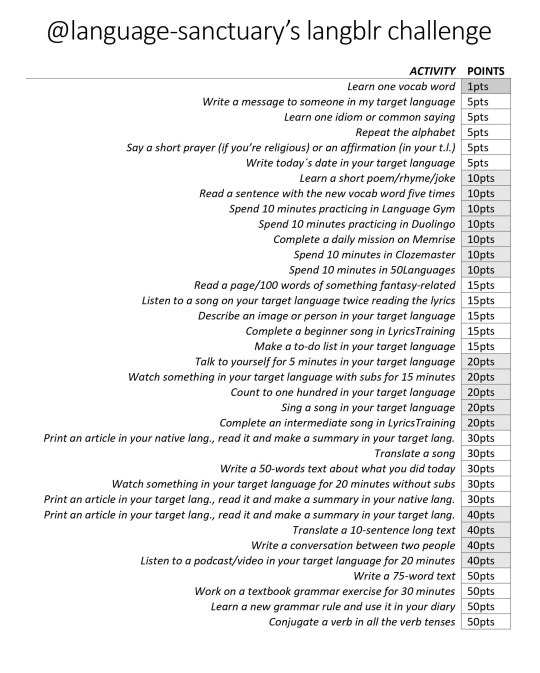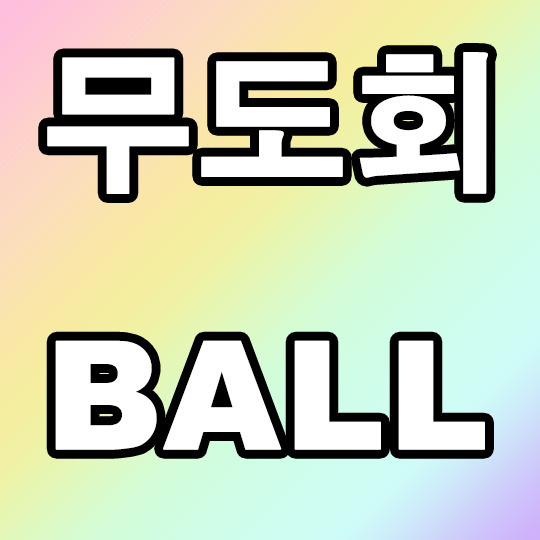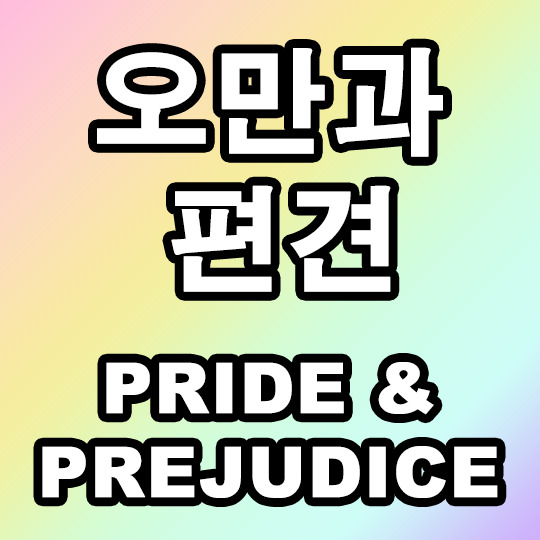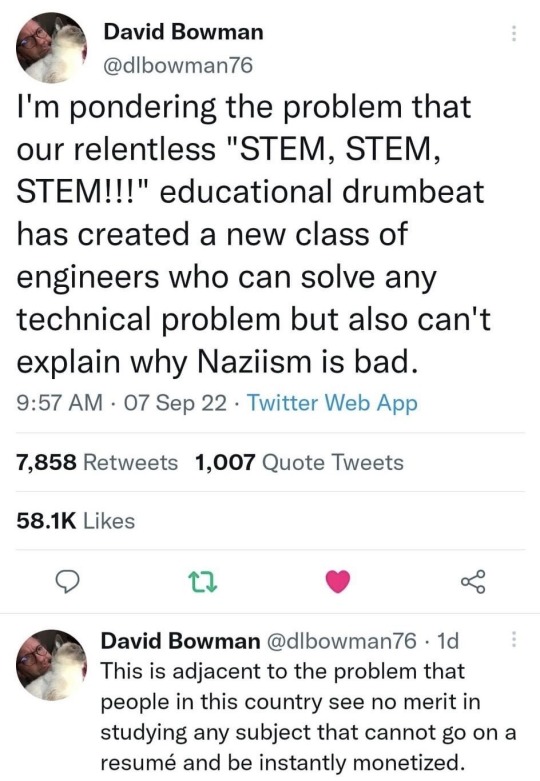Text


refseek.com

www.worldcat.org/

link.springer.com

http://bioline.org.br/

repec.org

science.gov

pdfdrive.com
281K notes
·
View notes
Text
LANGUAGE-SANCTUARY LANGBLR CHALLENGE

This is my personal method to language studying, I thought it would be helpful. A link to a PDF can be found here
How this works:
Language studying consists of fours skills: writing and speaking (active skills) and reading and listening (passive skills). I have compiled a list of language learning activities that provide a comprehensive approach to those fours skills and can be useful to visual, auditory or kinesthesic learners (or a mix).
You can set an estimate of the points you’ll get in week or day, or even try to improve a previous score.
You can try to go though the list in order
You can print the list, stick it to the wall and throw darts at it, just have fun!
If you use this, please tag it as #karenstudymethod or tag @language-sactuary so I can see the posts!
576 notes
·
View notes
Text
凉菜 – "Cool" Foods
These foods levels are never ending lol
There are 热菜 Hot Foods and 凉菜 Cool/Cold Foods. These words are only used to describe 主菜 Main Dishes, not 小菜 Side Dishes or 开胃菜 Appetizers. Despite being 凉 meaning "cool" it is used for cold dishes. This also goes for water, which is why if you want cold water, you must ask for 冰水 Ice Water instead of 凉水 which would be more like cool/room temperature water.
热菜 Hot Dishes are most dishes, especially meats.
凉菜 Cool/Cold Dishes:
豆腐丝 / dòu fu sī / shredded tofu
泡菜 / pài cài / pickled cabbage
凉面 / liáng miàn / cold noodles
酸辣黄瓜 / suān là huáng guā / sour & spicy cucumber
Review/Extra Vocab:
主菜 / zhǔ cài / main dish
主食 / zhǔ shí / main food, staple
小菜 / xiǎo cài / side dish
开胃菜 / kāi wèi cài / appetizer
凉快 / liáng kuài / cool (temperature)
暖和 / nuǎn huo / warm (temperature)
72 notes
·
View notes
Text
Shout out to all the students who aren't good at what they're passionate about, who can't concentrate on their study, who didn't win an award, who always thought they going to drop out but made it, who aren't passionate about what they're good at, who can't ask question or answer infront of whole class, who didn't have any friend throughout the whole session, who was going through difficult times because of their family issues, who have any kind of physical or mental illness, who love to study but hate giving exams. To all the students out there I'm so proud of you and you are are so strong.
#frankly i would take being good at smth im not passionate about#cause at least id be good at something/have something to do LMAOOOOO#it's okay tho :')
4K notes
·
View notes
Text
素菜 Vegetable Dishes
From my Yoyo Chinese lesson today :P
素菜 / sù cài / vegetable dish
荤菜,葷菜 / hūn cài / non-vegetable dish (meat or seafood)
素菜 Vegetable Dishes:
豆腐 / dòu fu / tofu
土豆 / tǔ dòu / potato
白菜 / bái cài / chinese cabbage
菜花 / cài huā / cauliflower
西兰花,西蘭花 / xī lán huā / broccoli
萝卜,蘿蔔 / luó bo / radish
豆腐 Types of Tofu:
臭豆腐 / chòu dòu fu / stinky tofu
家常豆腐 / jiā cháng dòu fu / home style tofu
炸豆腐 / zhá dòu fu / fried tofu
麻婆豆腐 / má pó dòu fu / mapo tofu (in chili sauce)
Some other functional words for how dishes can be prepared:
粒 / lì / chopped (literally: grain)
丝,絲 / sī / shredded
片 / piàn / sliced
丁 / dīng / diced
烤 / kǎo / roasted
157 notes
·
View notes
Text
The “bats can do calculus” thing is funny, because if you play around with synths for a while, you realize a lot of what humans perceive as “natural” sounds are just us directly perceiving certain complex mathematical things as big gestalt gestures. Like recognizing a multiplied wave as sounding like a woodwind. Hearing individual notes within a chord is basically Fourier analysis. Feeling how naturally a note decays is perceiving how linear or exponential the curve is. The fact that a sine wave sounds smooth but a sawtooth wave sounds nasally, and a square wave has a certain hollow fuzz to it. Is someone doing “math” there? Once you get the flavor of what each of those qualities are like, listening to the world becomes like directly perceiving math. Also, listening to birds becomes very strange. Because you realize some goofy easy weird sound you can squelch out of an analog synth is the same thing a bird is doing. Then sometimes they make a sound you can’t make. What kind of math is that bird on? Makes you wonder.
31K notes
·
View notes
Text

Hello Japanese language learning friends and media enthusiasts! It’s time to dive into my favorite guides, resources, and tools to get the perfect Japanese language immersion learning setup. All for free!
It is never too early and never too late for you to start consuming native Japanese media. Whether you’re a complete beginner, stuck in the intermediate plateau, or an advanced Japanese language learner looking to improve, you are bound to find something useful in this list. These are guides and tools that I have tried and tested, and I plan to add on to this list when I encounter something new and good.
ANKI: The Ultimate Spaced Repetition System
Let’s just say that if I had never discovered Anki, I would still be having the worst time of my life trying to memorize vocabulary using paper flashcards, writing them repeatedly, and eventually just forgetting them anyway. With Anki, I have thousands of vocabulary and grammar flashcards from the media I’ve consumed - also known as sentence mining - with native audio, context sentence, and images.
Even if I complain about Anki sometimes, it has fast tracked my learning so much that I will never go back to whatever I was doing before. I would highly recommend starting Anki at twenty new cards a day (never more!), and be familiar with 600 new vocabulary in a month. That’s 7,300 words a year all on one application.
If you’re a complete beginner and don’t know how to sentence mine yet, there are vocabulary decks (Tango N5 and N4 and Core 2.3k VN Deck) from TheMoeWay that you can use to start.
ANKI SETUP GUIDE: Animecards/Vocabulary Cards
Speaking of adding words to Anki, I recently switched to vocabulary cards or anime cards and it has been better for my recognition in the wild, and my time in Anki has been reduced to less than half the time I used to spend using sentence cards even when I have 300 reviews for the day. Check this Anki setup for animecards to start your sentence mining journey.
YOMICHAN: The Best Dictionary Browser Extension
Read anything Japanese on your browser with Yomichan as your dictionary extension and instantly add words you don’t know to Anki with a few clicks. Check this guide to setup Ankiconnect and Yomichan. I also recommend setting up Yomichan on KiwiBrowser on your mobile so you can read and lookup words on your html or epub on the go with Ttu’s Reader.
MONOLINGUAL DICTIONARIES: TheMoeWay’s Monolingual Transition and the Best Dictionaries for Yomichan
Of course, you can’t use Yomichan without a good set of dictionaries. Boost your Japanese comprehension in both vocabulary and grammar with monolingual dictionaries. All of my Anki cards have monolingual definitions on them, and my lookups while reading (save for common nouns, technical terms, etc.) are monolingual.
TheMoeWay has the best compilation of resources and dictionaries out there and it is constantly updated. My most used dictionaries are 大辞林 第三版, 新明解国語辞典 第五版, and 旺文社国語辞典 第十一版 since I found that they are the most comprehensive and easiest to understand.
ViSUAL NOVEL GUIDES: Easy Setup Guides to Reading Japanese Visual Novels
I learned how to setup Visual Novels through theMoeWay while the animecards site walks you through how to sentence mine from them for Anki, which makes use of programs like Textractor and ShareX. These guides are extensive and may seem complicated at first glance, but since it helps you read raw text and make cards that come with the target word, context sentence, image, and audio if available, they are not only high quality, but also makes reading easy and fun even for beginners!
GRAMMAR
Tae Kim’s Grammar Guide - Read through this and get a decent grasp of grammar from basic to advanced
Cure Dolly - I haven’t watched every video robotic voice rip but I did learn a lot from the few that I have
Dictionary of Japanese Grammar Series - Not free unless you read TheMoeWay then it totally is and comes with an Anki deck too but a very good textbook reference to most if not all grammar points that exist.
Yomichan with Monolingual Dictionaries - probably the best way to learn grammar but may be intimidating for a lot of people
DISCORD COMMUNITY
TheMoeWay has a language learning Discord that I spend too much time in that has a ton of resources shared daily, monthly reading challenges, anime and movie streams, and pretty sweet immersion leaderboards to help gamify the process of language learning.
I highly recommend reading the site thoroughly before joining the Discord especially the resources page, since it provides you with a lot of information on how to learn Japanese at all levels, and it overall offers good advice on language learning through immersion.
I go by meimae there as well. Come say hi!
-☆-
Thanks for reading, and I hope these resources make your immersion journey easier and fun as it did for me!
884 notes
·
View notes
Text
If you’re a teen and everyone is making you feel like you need to know what you want to do with your life right now, you should know that several people right now in my graduate program had other careers before this and they just decided to give it up and change course because they figured out that their old job wasn’t good for them. I met a woman last year who was on her fifth masters program.
You can change your mind. You can go back to school. You can go backpack around Asia for a month and try to find yourself. You can change religions, partners, careers, names, goals, politics, as many times as you need to.
Maybe you’ll get it first try. Maybe you’ll have to try a dozen times. But there’s nothing wrong with skipping town to become a barista in another city or getting a second bachelors because the first one didn’t work out or going to trade school or just wanting to work at the grocery store in your hometown for the rest of your life.
Point is, everyone telling you that you’ve gotta have it all figured out isn’t telling you the whole truth.
2K notes
·
View notes
Text
so fucked up that so much of our lives is dedicated to being a good student & good employee. it is no longer enough to have good grades or to do ur job well now u have to manufacture this narrative of yourself that is perfectly tailored to what universities &employers want to see. this is why we cant settle for being amateurs at anything I think.. we have so little free time & yet we feel like spending it without being "productive" is laziness.... I want to bake mediocre bread. & collect cool rocks. take naps. play tennis badly. try rock climbing. boil eggs to put in my pockets & eat at the park. fuck everything else
31K notes
·
View notes
Text
Things I learned during my PhD
1. The impostor syndrome is real (google it!) and can be quite crippling if you allow it to be. My first year in graduate school was rough. I was a bio major that took a handful of psych courses (and surprisingly, no neurobiology courses). This means that when I started the neuroscience intro course at NYU I was fascinated but clueless, which was evident in my first neuro grade. All of this resulted in me feeling like I wasn’t “good enough” to be studying neuroscience at NYU and that somehow they/I had made a mistake. Luckily, many of my friends were quick to point out that I was being ridiculous and laughed it off. That, coupled with the Dean’s support, made me snap out of my doubt and insecurity and take on a more proactive approach towards my education. This included tutoring, but hey, it worked! 1 year later I was cracking jokes with the Dean about my first year freak-outs LOL.
2. You do not need to know everything. As a graduate student, whose job is to be trained as a scientist, you are expected to do not only a lot of reading, but also a lot of learning. During my first two years, I took all sorts of neuroscience courses and remember wondering how I was going to remember it all. Newsflash: you don’t. Your learning experience is not confined to those two years of formal coursework- it stretches throughout your entire PhD and continues even beyond that. In my experience, I found that many of the concepts that I had trouble understanding re-appeared throughout my PhD. Sometimes through talks, other times through journal clubs, and other times by doing literature searches. A beautiful thing about science and learning is that all the knowledge builds on top of each other, and even though it may not seem like it to you, you are retaining this information. Also, important information will likely be repeated throughout your PhD, thereby facilitating your retention of the material. Just remember, you are being trained on how to think, and you will learn many things along the way.
3. Be thankful of constructive criticism and use it as an opportunity to grow. This one was hard. Receiving feedback (especially criticism) is difficult in general, but I find that it’s even harder when you’re in academia. I mean, you become invested in a project and/or research topic, and sometimes you’re wrong or don’t know what to do with a certain piece of data. Or you need an extra control. Or somebody doesn’t understand the clinical relevance of your project. Or like me, you have a thesis project that integrates multiple disciplines and is hard to think about because the findings are counterintuitive. Bottom line is: at some point you will receive criticism that either A) you haven’t thought about B) you don’t agree with or C) you don’t understand. One of the many things that my PhD mentor taught me is to be grateful when somebody outside the lab (or your field) makes a constructive comment about your work. As she put it, this is indicative that they are thinking critically about your project, which they do NOT have to do. Lesson learned: when someone gives you constructive criticism, listen, and kindly thank them for their feedback because they are helping you think about your work in a different way.
4. Build and maintain a network. Talk to people! This includes graduate students, postdocs, professors, collaborators, bloggers and many other people you meet at conferences, etc… I know, small talk is sometimes awkward and uncomfortable, but be thankful that you all have a common denominator: an interest and passion for science! Use that to your advantage. Networking is essential for a number of reasons. First, it’s a great way to meet other academics that you have things in common with and may even result in collaboration. Second, you can use their experiences and advice to help your own academic training and development. Third, if you maintain that network, you get to see what kinds of things they go on to do. For me, this is incredibly inspiring and helps to keep me motivated despite whatever I may hear about the pains and perils of science.
5. Patience is a virtue and good things come to those who wait. In science, things usually take longer that you think they will. While this may not be a surprise to fellow PhDs and other scientists, a lot of incoming graduate students don’t realize this and end up feeling disappointed when they don’t get that grant they applied for on the first round, their data is not ready for publication and/or their paper gets rejected multiple times (thus lengthening the time it takes to publish). Therefore, think of your PhD as a marathon, not a sprint.
6. Write your papers as your experiments go along. Once you have a hypothesis and a preliminary approach, start drafting the paper. I know, it sounds crazy given that you don’t have any data yet, but it will help you have a clear rationale and organize the methods. For example, start off with a preliminary title and abstract, make a bullet list of points you want to cover in the introduction, insert the methods section and make a list of preliminary results (and how you would interpret them). This will help you start thinking about what your story could be and what it would look like. Also start building an EndNote library containing the references you know you already need or think might need.
7. Make it a habit to read regularly. You’d be surprised at how easy (and fun) it can be. Follow neuroscience blogs, twitter accounts, attend a journal club, create a Scizzle, use Google scholar, friend people on ResearchGate, etc… Do whatever works, but try to read new papers every week. You can even have journals that you check every week/every month/etc… I, for example, look at J Neuro and NPP every week, Biological Psychiatry/Nature Neuroscience when there’s a new issue and such.
8. Know your talk well. Once you have your committee’s approval to write/defend, start creating your talk. Normally, this will be a merger of previous committee meeting presentations or any other presentations you have given. Your goal is to tell your PhD story through your data in a clear and concise way. This means that it is up to you to fill in the knowledge gaps, ensure a smooth and logical transition from slide to slide, and connect the dots regarding the meaning of your work for the audience. Needless to say, this is much easier when you know exactly where each slide is and what slide is coming next. As one of my committee members said, this takes the stress out of being “surprised” by your own data and allows you to be more personable, as your personality is more likely to come through.
9. Find a committee that is critical, yet supportive. Keep in mind that your thesis committee holds your fate in their hands. Thus, don’t make this decision lightly! Ideally, you want these people to be “fans”, meaning that they think you are bright, capable and are actually interested in helping you develop as a scientist. Try to schedule individual meetings with potential members BEFORE asking them to be a part of your committee. Tell them about your ideas and potential projects, see how they respond. Are they genuinely interested? Do they have good questions? Do your interests overlap with their research line? Furthermore, ask around! It is likely that someone else in your program (from upper years) has them in their committee. Find this person and ask what they’re like.
10. Strive to become not only a better scientist, but also a better person :) As a former PhD student, I know that it feels like everything revolves around your PI, your project, all the work you have to do, etc… Although I personally believe that in order to do this job you need to lose yourself to it (to a certain extent), this doesn’t mean that you have to let yourself go and be consumed by it. The world is bigger than just academia, and you also need to grow as a person (and not just as a scientist). Find time to cultivate other interests, make new friends, rediscover yourself as you go along the PhD track. Your mental health will thank you for it.
Disclaimer: All PhDs are not created equal. The points made above reflect my own personal PhD experience. I’ve always said that two people can even be in the same lab and same year and still have radically different experiences. Regardless, I hope everyone can find something that is useful to them :)
2K notes
·
View notes
Text
there is something truly, uniquely repulsive about the kind of writing demanded for college and scholarship applications. you are obligated to have dreams. you are obligated to perform ~community service~. the model applicant is a hopelessly naive wide-eyed idealist eager to be exploited and left out to dry. you must have experienced adversity, but you must explain how you have triumphed through your own intellect and will. you must aestheticize your failures, rendering them as tales of redemption and growth. you must sound authentic and vulnerable, without venturing anything that could be genuinely risky. you are not supposed to write about your dream of working a soulless corporate gig for decent pay so you can finally be done with this constant striving and focus on your family. you are not supposed to explain that your grades are patchy because school is fundamentally hostile to neurodivergent students and you can't just overcome that through your individual effort. you are not supposed to explain that you stopped volunteering because of burnout and trauma. you are not supposed to explain that you gave up on having "dreams" because trying to make a difference means doing more work for less pay and greater scrutiny and you're just too sick and tired for that shit.
7K notes
·
View notes
Text

This first image from NASA’s James Webb Space Telescope is the deepest and sharpest infrared image of the distant universe to date. Known as Webb’s First Deep Field, this image of galaxy cluster SMACS 0723 is overflowing with detail. Thousands of galaxies – including the faintest objects ever observed in the infrared – have appeared in Webb’s view for the first time. This slice of the vast universe covers a patch of sky approximately the size of a grain of sand held at arm’s length by someone on the ground.
29K notes
·
View notes
Text
Honestly if you want justification for why it’s important that English/Language Arts teachers make you break down exactly why a given sentence made you feel a given way, the fact that it’s now a point of basic political literacy to be able to tell when a headline is trying to make you angry, and at whom, and about what, is a pretty strong case in point.
68K notes
·
View notes
Text
recall vs recogntion
so in this post a few days ago, one of the study tips I mentioned was ‘practise recall not recognition’, and I’ve since discovered that quite a few people don’t know what that means and why it helps, so I figured I’d explain!
WHAT IS RECOGNITION AND WHY ISN’T IT HELPFUL?
Recognition means teaching yourself to identify and acknowledge information that you’ve seen before. This means that, if you’re shown a piece of information in class, you’re able to recognise it and think, ‘hey - I know that!’.
The issue with this is that you don’t actually know and understand that piece of information; you simply know that you’ve seen or heard it before. In an exam context, unprompted, you won’t be able to rewrite that information - let alone expand on it - because it’s not in your head.
Examples of recognition-based study methods include:
Reading through notes
Highlighting or simply rewriting notes
Flashcards which just show the information
Reading a textbook
All of these are passive studying techniques, meaning that they’re not difficult and, in turn, that they’re not engaging your brain with the information that you’re trying to learn.
WHAT IS RECALL AND WHY IS IT IMPORTANT?
Recall means training yourself to remember information unprompted; if somebody were to ask you (outside of your class) what x means, you should be able to tell them without checking your notes or textbook.
The importance of this is that it’s exactly how most exams work. Unless your education institute uses open-book format, you’re never going to have the information in front of you to ‘just check through’ when answering a question. In an exam situation, you have to be able to pull that information straight from your brain in order to write an answer and that is exactly why recall-based studying is so key to learning.
Examples of recall-based study methods include:
Practising past papers/exam questions
Question/answer style flashcards
Flashcard-based activities on sites such as Quizlet
Setting yourself mini-tests
Writing out everything you can remember, and then adding in the missing information using a different colour
Getting other people to test you
Some of these things do ultimately sound a little basic, but it’s something that I’ve been taught about a few times, and it’s honestly one of the biggest mistakes that students make when studying for exams! I really hope this post does a decent job at explaining the concept to anybody who hasn’t heard of it before, but if anybody has any questions or add-ons, feel free to message me or send an ask!
my blog
2K notes
·
View notes
Photo




learn korean through kpop - feel my rhythm by red velvet🎵
무도회 - ball (as in a dance, not a sports ball)
꽃가루 - confetti/pollen; literally “flower + powder/dust”, used in the song as confetti rather than pollen
오만과 편견 - pride & prejudice ; 오만 - pride + 과 - and + 편견 - prejudice
달빛 - moonlight
5 notes
·
View notes
